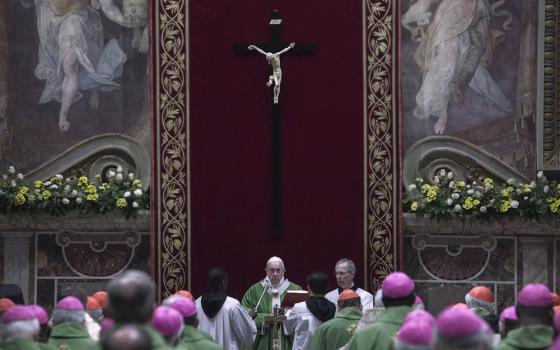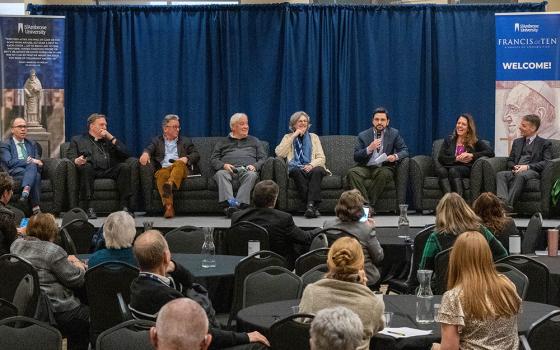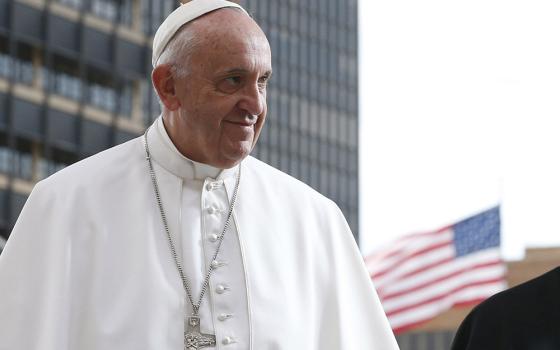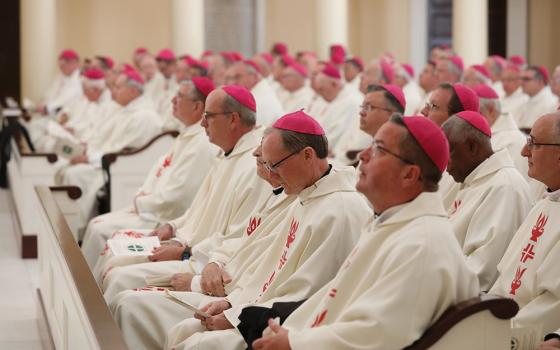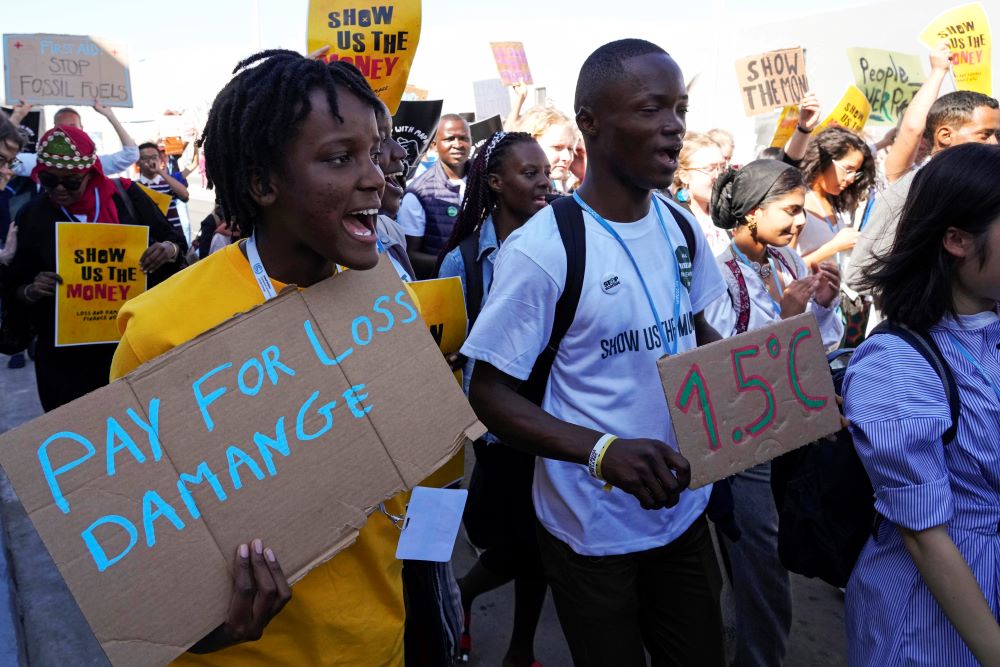
Vanessa Nakate of Uganda, left, participates in a Fridays for Future protest at the COP27 U.N. Climate Summit while holding a sign that says "pay for loss and damage," Nov. 11, 2022, in Sharm el-Sheikh, Egypt. (AP/Peter Dejong)
The 10th anniversary of Pope Francis' papacy brings an opportunity to reflect on his legacy so far. As a climate activist, I believe his advocacy on climate and environmental breakdown — the most important issues of our time — is a major achievement.
Pope Francis has taken a disruptive approach where others might have stayed quiet.
In June 2015, a few months before COP15, the United Nations climate summit that generated the Paris Agreement, Pope Francis issued "Laudato Si'," his encyclical on the challenges of climate change and threats to our common home. His intervention undoubtedly contributed to the diplomatic momentum that got the Paris Agreement over the line later that year. Since then, he has regularly issued statements on the threat posed by environmental degradation.
The pope's outspokenness is vital. A report from the U.N. last October suggested we are on track for a 2.8-degree Celsius warmer world — far exceeding the limit of "well below 2C of warming" agreed to in Paris. The U.N. Secretary-General António Guterres calls this a "climate catastrophe." Such warming would lead to collapse in agricultural yields, water shortages and more extreme heat waves, droughts and storms around the world.
In East Africa, where I am from, we are experiencing the brutal beginnings of this climate breakdown. Oxfam estimates 6 million children in the region will experience, or are already suffering from, acute malnutrition.
In September I visited Turkana County in Kenya, a region suffering from devastating drought, largely as a result of five failed rainy seasons. One morning I met a child in a hospital where cases of the most severe malnutrition are referred. The boy was not able to receive the treatment he needed in time, and by the time the sun set that evening, he had passed away.
In the face of such suffering, it can be hard to continue thinking and talking about climate change.
I became active in climate activism in 2019 as part of Fridays for Future, a movement of young people striking for the climate across the world. There have been many moments since then when I have found it overwhelming.
Sometimes the struggles we face — the obstruction from vested interests, the lack of urgency from political leaders — seem too difficult to overcome. If I relied on human hope alone, I don't think I would still be fighting. But my faith has kept me going.
I hope Pope Francis has given millions of people around the world that same inspiration.
I am a born-again Christian, a member of Phaneroo Ministries International in Uganda. My relationship with God gives me hope, the expectation of something good. It allows me to believe in something I have not seen yet.
Advertisement
In times of crises, we must reveal the heart of Christ, we must reveal the love of God. We must reveal God's grace toward humanity. We must use our voices. We must use our platforms. We must stand by our values and do something for the communities on the front lines of the climate crisis.
We must reflect the nature of God. Because we were made in God's image, we can take responsibility for the fish in the sea, the birds in the air, the animals, the people and the Earth itself. We must learn to do good. We must work for justice. We must help those on the front lines.
Faith leaders hold significant influence over the communities they lead and have a responsibility to pay attention to the biggest threat our world faces. Faith communities can play a crucial role in the transition of our societies away from fossil fuels and other major sources of pollution. Faith can provide the resolve that is needed to believe we can change the world for the better.
On the 10th anniversary of the papacy of Pope Francis, let us consider how we can contribute to saving the Earth we have been blessed with for current and future generations.




